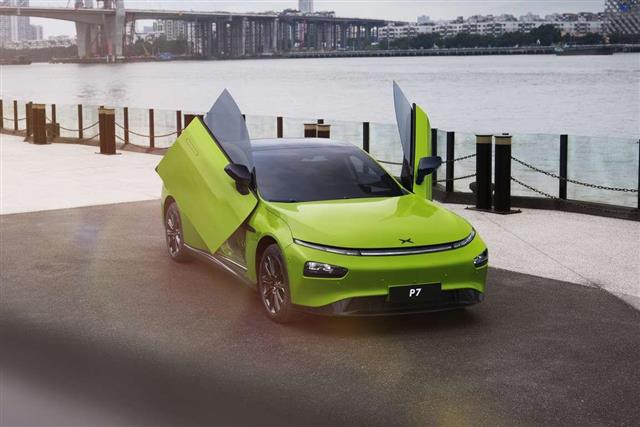Due to the high demand for its two cars, China-based EV company XPeng virtually doubled vehicle deliveries in the second quarter of 2022. Gross margin decreased to 10.9% as the company generated total revenues of CNY7,436.3 million (US$1,110.2 million).
Next year, Xpeng will introduce two new models in an effort to increase its margin.
On August 23 in the evening, XPeng announced its financial results for the second quarter. The essential numbers and their yearly growth are listed below.
2Q22 financial results for Xpeng
Results
total earnings
CNY7,436.3m
93.6%
Source: August 2022, Xpeng, compiled by DIGITIMEZS Asia
When compared to the same period in 2021, XPeng’s car sales revenue increased 93.6% in the second quarter of 2022 due to high vehicle deliveries, particularly for the P7 and P5. The delivery of P7, a smart sports car, increased by 39% year over year for the corporation.
Its vehicle margin decreased from 10.4% in the first quarter to 9.1% in the second quarter. Additionally, the margin was lower than the 11% at the same time in 2021. According to Xpeng, the decline was better than the company’s expectations and was mostly caused by rising battery costs.
He Xiaopeng, the company’s co-founder and CEO, started the conference call for the second quarter by highlighting the upcoming G9, an electric SUV outfitted with full-scenario advanced driver assistance systems (ADAS). Within 24 hours, the model garnered almost 22,000 pre-orders, He claimed.
He declared that the G9 and other new models will be fully compatible with the company’s widely-deployed high-powered supercharging infrastructure in China. As of early August, 1,000 self-operated supercharging stations had been erected, according to XPeng.
He said that XPeng has created 480 kilowatt high-powered supercharging stations, which are three times more powerful than the industry’s standard 120 kilowatt charging stations, to support the G9 and other vehicles using 800V charging.
In five minutes, the fast charging technology can provide a 200-kilometer range. By 2025, XPeng intends to construct 2,000 more stations in China’s largest cities and along significant thoroughfares.
There will be two new models in 2023.
Additionally, he declared that the business would introduce two new platforms in 2023, one for medium-sized models and the other for medium-to-large models. Together with G9, these two models will help XPeng maintain its sales growth momentum into the following year, according to He.
According to the CEO, the company can create at least six models using the two new platforms. The initial system upgrade would occur after three years for each platform.
Since the company targets a market where consumers might be more concerned with the price-performance ratio, one analyst questioned how the company transforms its innovation into sales during the conference call.
He claimed that XPeng prioritized “configuration vs. pricing” more. Sales will automatically rise if the car configuration at a particular price is good enough. Six to 18 months after the product introduction, branding, after-sale services, product quality, and competition will also have an impact on sales performance. He used the company’s P7 as an example, which witnessed a sharp rise in sales following the introduction of a premium configuration.
However, XPeng issued third-quarter 2022 estimate with deliveries between 29,000 and 31,000, an increase of 13.3% to 20.8% from 2021. Between CNY6.8 billion and CNY7.2 billion in total revenues are anticipated, up 18.9% to 25.9% from the third quarter of 2021.
When questioned about the difficulties in locating chips and batteries, He responded that early in the following year, the industry’s battery supply is anticipated to improve. In the first half of 2022, dozens of automotive ICs faced a high danger of shortage; however, the situation has since improved.
The CEO did, however, remark that 5,000 chips might be needed for an EV. As a result, the shortage will probably persist but be lessened at the start of the following year.
The production of vehicles and auto parts in the Sichuan region of western China has been hampered recently by a lack of power. He said that because XPeng had contacted its suppliers beforehand and taken appropriate action, the scenario had no effect on the company’s supply chain.







